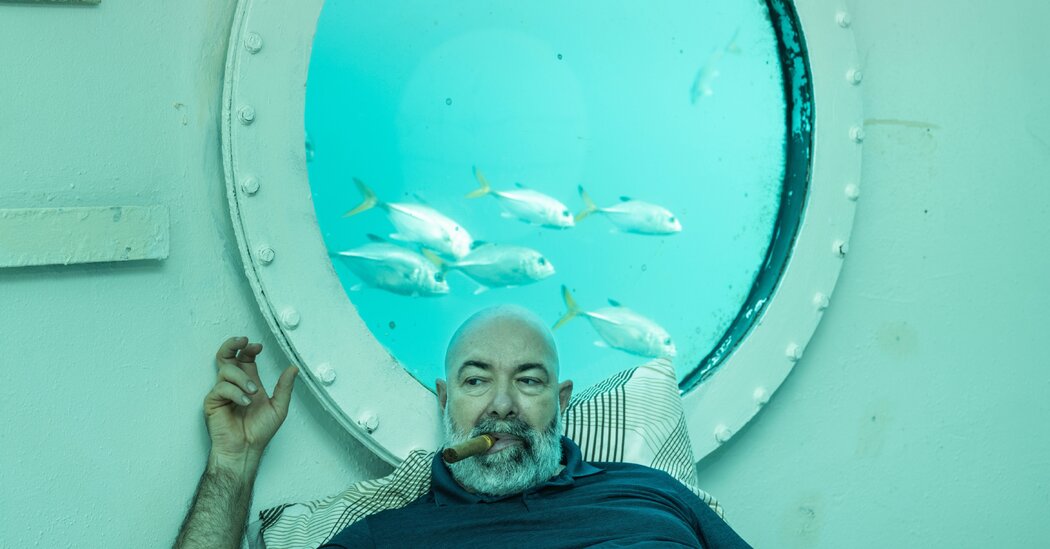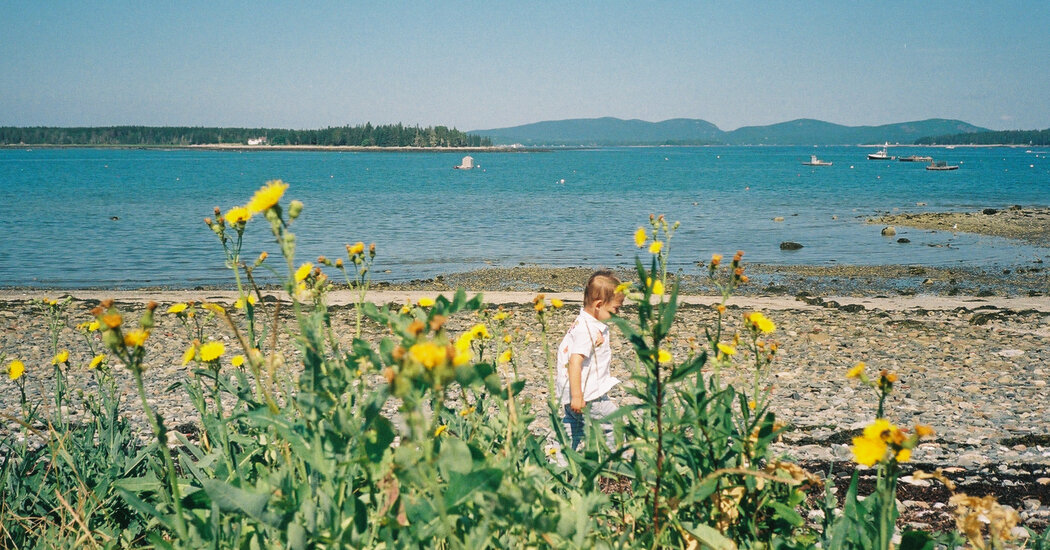Forty-six hours before Rüdiger Koch officially seized the Guinness World Record for the longest time spent living in an underwater fixed habitat, I took a 15-minute motorboat ride from Linton Bay Marina, in north-central Panama, to visit him. It was a warm afternoon in January, and Koch was approaching a full 120 days spent working, eating, sleeping, drinking and smoking cigars in a room 36 feet below the surface of the Caribbean.
Listen to this article, read by James Patrick Cronin
His 304-square-foot habitat was inside the underwater buoyancy chamber that helps stabilize a floating home called SeaPod Alpha Deep. An armed security guard was in the above-water part of the structure, monitoring Koch and ensuring that the pod did not have “any visitors that we don’t want.” When my boat arrived, he threw down a cable and winched me up. Then I made my way down a 63-step spiral staircase to the circular lower chamber — a dizzying process, as the SeaPod rocked in the loudly sloshing sea. I was greeted by a beaming Koch, a bald 59-year-old German engineer with a whitened beard and a Buddha belly.
Advertisement
SKIP ADVERTISEMENT
He gave me a tour, pointing to a school of sardines outside a porthole. The quarters came equipped with a bed, an exercise bike, Starlink internet and a dry toilet. A digital clock on the wall was counting down toward his 120-day goal. (The previous record was 100 days, set in 2023 by Joseph Dituri at Jules’ Undersea Lodge, off the coast of Key Largo, Fla.) “I’ve enjoyed the time, actually,” Koch said in his heavy German accent, his face greenish-blue from the light pouring in. “This is what people get completely wrong. They think that I feel like a prisoner, and I’m putting marks on the wall. My food is excellent, my booze is excellent.” A person came by to clean daily.

The upper portion of Koch’s SeaPod, Alpha Deep.Credit…Alec Soth/Magnum, for The New York Times
Koch arrived here, in small part, via a San Francisco-based nonprofit called the Seasteading Institute,which promotes “living on environmentally restorative floating islands with some degree of political autonomy.” The vision, as the Institute’s president, the “seavangelist” Joe Quirk, once told Guernica, is “startup societies where people could form whatever kind of community they wanted” — a libertarian-inflected world where, it is said, you could “vote with your boat,” relocating to a community in line with your views.
Subscribe to The Times to read as many articles as you like.




